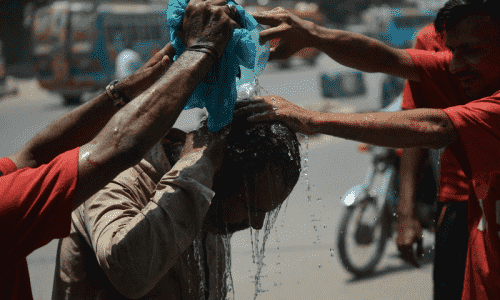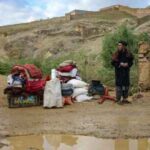Prior to an anticipated increase in temperature, the Punjab Primary and Secondary Healthcare Department on Sunday instructed medical facilities inside the province to put certain standard operating procedures (SOPs) into place.
The Meteorological Department issued a warning earlier this week that majority of the country would experience heatwave conditions due to high pressure in the upper atmosphere, particularly in Punjab and Sindh from May 21 to May 27.
In Sindh and Punjab, daytime highs were “likely to remain 4 to 6 degrees centigrade above normal” from May 21 to May 23, and six to eight degrees Celsius from May 23 to May 27, according to the report.
The Punjab government changed all public and private schools’ schedules on Friday, moving them from May 18 to May 31.
The chief executive officers of all district health authorities, as well as the medical superintendents of tertiary care institutions, district headquarter hospitals (DHQs), and tehsil headquarter hospitals (THQs), received directions from the provincial health department today.
“According to the weather advisory from the Pakistan Meteorological Department, [a] heatwave is expected to hit all areas of Punjab from May 21 to May 27, especially in the southern districts of Punjab i.e. Bahawalpur, Rahim Yar Khan, Dera Ghazi Khan, Multan,” stated the letter, a copy of which is available on Dawn.com.
It stated that certain SOPs should be put into place and that “this is [expected to] cause [a] serious impact on the daily routines and lives of the people across Punjab.”
These included setting up heatwave counters at DHQs and THQs, as well as tertiary care institutions, to warn the public about heatwaves and provide advice on how to avoid them.
In addition, the health department gave officials instructions to “establish the responsibility matrix of each department” and to arrange coordination meetings with all relevant parties.
Additionally, officials were instructed to advise the public on how to stay cool and minimize outside activities, as well as how to properly hydrate and handle emergency situations.
It stated that all medications should be “available across all health facilities round the clock” and that “all water coolers, with plenty of clean water and air conditioners, shall be functional across all health facilities, without fail.”
The agency also instructed staff to promptly respond to any emergency scenario and maintain close communication with the district/tehsil administrations, Rescue 1122, and district disaster management agencies.
Additionally, the health department provided specific instructional messages that the general public may utilize. These included minimizing time spent outside, protecting oneself from the sun when outdoors, and refraining from “laborious work in direct sunlight.”
It advised people to “keep themselves hydrated and avoid carbonated beverages by drinking plenty of clean drinking water,” adding that air conditioners and mist fans might be utilized to maintain the environment “in [a] tolerable limit.”
The Punjab Provincial Disaster Management Authority’s (PDMA) director general, Irfan Ali Kathia, stated that social media and the internet were being used to warn people about the risks associated with heatwaves.
In a statement, he stated, “All departments can fight heat wave with joint and mutual cooperation.” He noted that people were asked to exercise caution and refrain from moving while it was very sunny.
“Avoid leaving the house for no reason at all. Put on cotton clothing in light colors, advised the PDMA representative.








